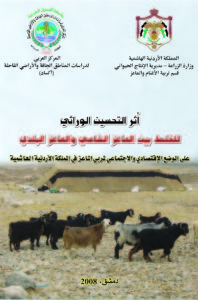Economy and Planning Department
Tasks:
- Conducting economic and social feasibility studies for the results reached by ACSAD’s research programs and studies.
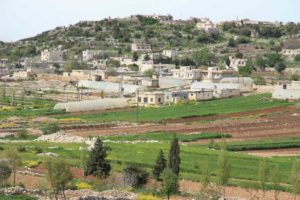
- Preparing the documents of the development projects to be implemented and presented to the international and regional financing organizations.
- Preparing marketing studies for the products of arid and semi-arid areas in the Arab World.
- Serving as a house of expertise for conducting technical and economic feasibility studies for the development projects of the Arab and non-Arab countries.
- Preparing ACSAD’s projects, work plans, budgets and concept notes and following-up their implementation.
- Conducting studies on rural environment development, enhancing the role of women in the productive process and improving the livelihoods of the rural households.
- Organizing the meetings of ACSAD’s legislative and executive councils.
- Preparing various reports related to ACSAD’s activities in cooperation with the other departments.
- Enhancing technical cooperation and exchanging information with the Arab, regional and international countries and organizations.
This department includes four sections as follows:.
Socioeconomic Studies and Project Preparation Section:
This section carries out the following duties:
- Studying the socioeconomic and structural constraints hindering the adoption of the new techniques and assisting the Arab countries in increasing their production.
- Evaluating the technical constraints both economically and socially.
- Studying the economic feasibility of the findings of research and studies carried out by ACSAD and preparing the documents pertaining to them.
- Preparing the documents of the research and development projects and promoting them at the funding agencies.
- Carrying out socioeconomic studies at the request of the Arab countries or the region al and international parties.
- Carrying out socioeconomic studies for ACSAD.
Planning and Follow up Section:
The section carries out the following duties:
- Drawing up ACSAD draft work plans, annual budgets and preparing concept notes in cooperation with other ACSAD departments.
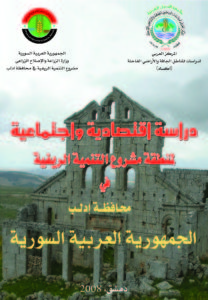
- Following up and evaluating the implementation of ACSAD work.
- Preparing evaluation reports on ACSAD strategy.
- Coordinating the activities between the different ACSAD departments and sections and following up their implementation.
- Preparing draft agendas of the ACSAD’s executive council, general assembly and consultative committee in cooperation with other ACSAD departments.
- Cooperating with the Department of Administrative and Financial Affairs in preparation for holding the meeting of ACSAD’s executive council, general assembly and consultative committee.
- Assuming the secretariat of the ACSAD’s consultative committee.
- Following up the implementation of the decisions of ACSAD’s executive council, general assembly and consultative committee and preparing the required reports.
Arab and International Cooperation Section:
This section carries out the following tasks
Proposing, following up and evaluating means of fostering the technical cooperation and the Arab regional and international relations with ACSAD.
- Coordinating with the other departments in drawing up draft technical cooperation agreements with different countries and with Arab regional and international organizations and also with technical cooperation agencies and funding institutes.
- Facilitating the exchange of information and experiences between ACSAD and the Arab regional and international organization.
- Preparing and organizing joint meetings and following up the implementation of the recommendations resulting from the meetings held between ACSAD and the Arab regional and international organization.
- Following up the implementation of the decisions and recommendations made by the secretariat General of the League of Arab States and its committees and preparing the relevant reports and memoranda.
Agricultural Extension Section:
This section carries out the following tasks:
- Coordinating with the agricultural extension services in the Arab countries regarding the agricultural research findings in general and those generated by ACSAD in particular with emphasis on following up the mechanism of implementation and the results achieved via applying the research data under the conditions of each country.
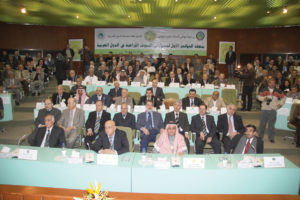
- Training the Arab agricultural extension cadres in the scientific findings achieved by ACSAC and teaching them how to draw up the agricultural extension program and how to encourage the farmers to adopt the new research data.
- Carrying out applied extension researches in the Arab countries and making evaluation studies on the agricultural and rural development projects.
- Monitoring and evaluating the mechanisms of implementing the results of the agricultural research distributed by ACSAD and encouraging the exchange and dissemination of these results(periodicals, media).
- Carrying out social studies in the areas in which projects related to ACSAD are carried out and concentrating on developing the rural woman and ensuring her active participation in applying the research results.
- Encouraging the exchange of experiences and strengthening the cooperation and coordination between the country agricultural extension services and the ACSAD section of agricultural extension.
- Establishing an agricultural extension network in the Arab countries and evaluating the Arab experiences to help develop the agricultural extension work.
The most important training courses and workshops:
- Planning and evaluating the agricultural projects.
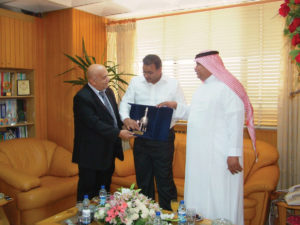
-
- Developing the rural woman in the field of the rural industries.
- Rural poverty and food security. •Impacts of the environmental changes on the social and economic conditions of the population in the arid areas and dry lands.
- Preparing the documents of the investment projects for promotion and funding purposes.
- Developing the capacities in the field of farm management.
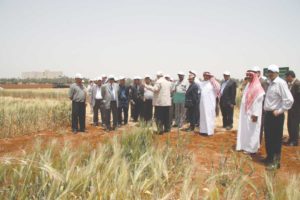
- Preparing technical and economic feasibility studies on the agricultural projects.
- Funding small projects.
- Using the techniques of the statistical program SPSS.
